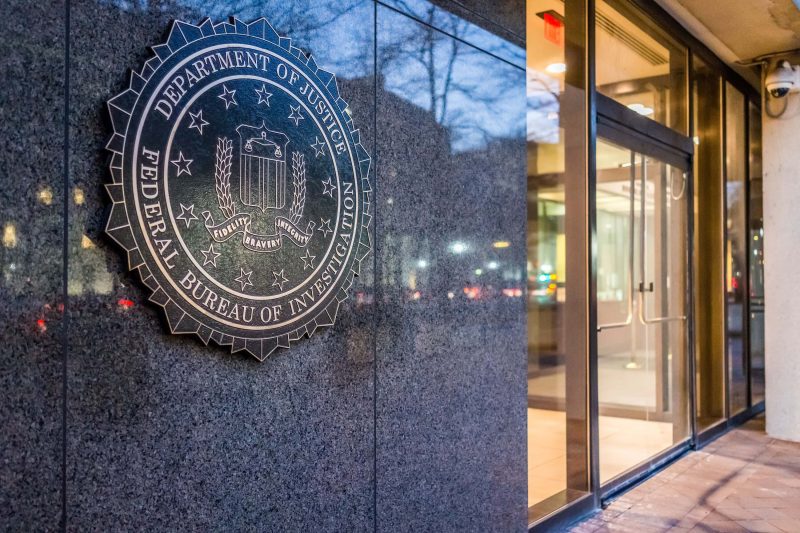The Federal Bureau of Investigation (FBI) seized digital assets worth $1.7 million from March to May in the United States.
According to the , the Federal law enforcement agency seized Bitcoin (BTC), Ether (ETH), USD Tether (USDT), Monero (XMR), and DAI in its ongoing efforts to curb unlawful activities.
Specifically, the FBI confiscated $147,000 worth of BTC, $800,000 in ETH, $307,000 in USDT, $20,000 in Monero, and $469,000 in DAI. The FBI also seized other assets including luxury cars and banks, fiat currencies in bank accounts as well as other fashion items.
The Bureau cited multiple breaches in federal law as part of its reason for the seizure.
“The Federal Bureau of Investigation (FBI) gives notice that the property listed below was seized for federal forfeiture for violation of federal law.”
The FBI explained that the seized digital asset was tracked to multiple sources emanating from several locations from accounts on Binance and other exchanges.
A major seizure that caught the eye of many crypto observers was in the Eastern District of Virginia where 428.5 ETH was seized totaling $463,000 at press time making it the largest amount apprehended.
The FBI has released multiple statements warning investors and citizens from prevalent tactics deployed by bad actors to carry out crypto-based scams.
“Be cautious of those get-rich schemes; educate yourself and prevent scammers from fattening their pockets with your hard-earned money, or using you as a money mule to help launder funds within their criminal enterprises,” the statement read.
It’s all hands on deck against bad actors
Amidst the general market turmoil of last year, notably the crash of the Terra ecosystem in April and the collapse of in November, crypto scams hit new highs totaling over $2 billion.
The infamous events sparked a new regulatory surge among legislators and agencies to curb the trend with some policies going overboard in several jurisdictions.
On Aug 6, the FBI about a popular non-fungible token scam requiring users to move to unsecured sites leading to a loss of assets. On May 23, the agency also restated its commitment to eliminating scammers from the crypto ecosystem, enlightening users on fake job advertisement fraud that made rounds.
The United States Department of Justice (DOJ) also doubled its crypto with a major reshuffle of teams to create a better system to combat fraud within the system.
The upgrade saw the National Cryptocurrency Enforcement Team merge with the Computer Crime and Intellectual Property Section (CCIPS) whilst maintaining its internal structure and prosecuting its cases.
